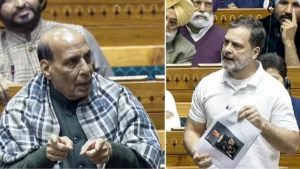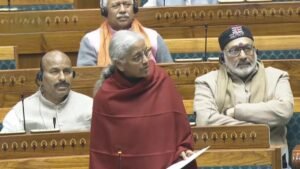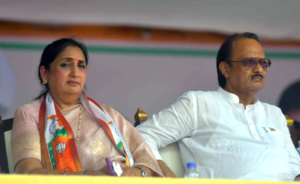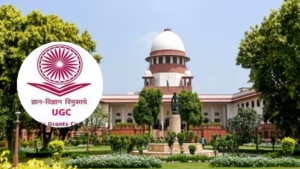Tribal woman dies: Tribal Woman Gang Rape has served as a grim reminder that women’s safety is still at risk even in the 21st century. Member of the Madhya Pradesh Human Rights Commission Rajiv Kumar Tandon has taken a serious note of a ghastly incident in Khandwa district in which a 45-year-old tribal woman succumbed to injuries after being brutally assaulted by two men.
The incident took place in a village close to Khalwa, which is a tribal-dominated region of Khandwa district. Official reports say that the woman received serious bodily injuries during the attack that resulted in her death. The case has grabbed serious attention from media across the state as well as human rights groups. Details of the Brutal Attack
The duo, Sunil and Hari, are accused of inflicting hardcore brutality on the victim during the attack. During the post-mortem report, forensic scientist Dr Seema Sutay, who is in charge of the Department of Forensic Science and Toxicology, disclosed gruesome details.
Medical findings
- 176 cm of the victim’s intestine had come out from her private area
- Severe internal wounds typical of excessive force
- No uterine or rectal damage in spite of the extent of other injury
- Evidence pointing towards the application of undue force while attacking
Dr Sutay said that such intestinal protrusion happens only when severe relaxation of muscles occurs, which means massive force was used either manually or by a weapon. She termed the act as one of “utmost brutality.”
Tribal woman dies: Conflicting Accounts Raise Questions
The inquiry uncovered contradicting testimonies regarding the type of assault. The early media reports indicated that the assailants employed foreign objects such as rods or wooden objects to torture the victim. However, Additional Superintendent of Police Rajesh Raghuvanshi said that no foreign objects were found at the scene of the crime.
When asked about the contradiction between police evidence and post-mortem examination results, Raghuvanshi replied that the accused might have used their hands to cause such serious injuries. He sidestepped a direct answer on how the post-mortem report contradicts police findings, saying only that “the matter is under investigation.”
Medical Expert’s Analysis
To explain the medical point of view of the case, prominent gastroenterologist Dr Omkar Patel from Bhopal shed light on the matter for IANS. He asserted that if too much force is applied to the intestine, yes, it can actually bulge out through the private area as tissues are damaged or torn.
“It is feasible by hand, too,” Dr Patel said, cooperating with the police theory while accepting the intense brutality needed to inflict such injuries.
Despite such major trauma, the victim managed to survive for around 18 hours following the attack before dying from her injuries. Such drawn-out suffering has helped contribute to the seriousness of the case and the public outcry surrounding it.
Tribal woman dies: Human Rights Commission Takes Action
Realizing this to be a prima facie violation of human rights, MP Human Rights Commission member Rajiv Kumar Tandon has asked for detailed explanations from the concerned authority. The commission has formally recorded the case and requested the Superintendent of Police, Khandwa, to submit a detailed report about the action taken in the investigation.
The authorities have been allowed three weeks within which to present their full report to the commission. This schedule demonstrates the gravity with which the human rights body is addressing the case and its determination to see the victim receive justice.
Legal Proceedings Continue
The arrested accused, Harish and Sunil, were produced in court on Monday. The court originally remanded them in police custody for two days. When they were produced again on Tuesday, the court extended their police custody for another two days to enable further investigation.
The judicial process is being watched closely by human rights organizations and the media, making the judicial process transparent.
Tribal Woman Dies: Wider Implications for Tribal Women’s Safety
This horror case brings to the forefront the vulnerability of tribal women and highlights serious concerns about their safety and security. The case has become a symbol of the constant struggle of women, especially those belonging to marginalized groups, to access justice and protection.
The case points towards a few serious issues:
- Lack of proper security arrangements in far-flung tribal regions
- Need for an increased law enforcement presence
- Need for prompt and effective investigations
- Need for improved survivor support systems
Demand for Systemic Reform
The horrific nature of this crime has set debates about overhauling completely how crimes against women are averted, investigated, and tried. Human rights activists are demanding sterner action to prevent violence against women in vulnerable groups and ensure the delivery of justice quickly and efficiently.
The case is a grim reminder that in spite of legal safeguards and awareness initiatives. Women still remain vulnerable to brutal violence. It highlights the need for society to work on the root causes of such acts and make the world safer for all women.
Moving Forward
As the investigation continues the Human Rights Commission awaits detailed reports from authorities. This case will likely influence policy discussions about women’s safety in tribal areas. The outcome of this case could set important precedents for how similar crimes are handled in the future.
This tribal woman’s death is not only an individual loss but also a failure of society to safeguard the vulnerable. Her tale has to be the spark that ignites positive change in how we deal with women’s safety and justice in India








Be First to Comment